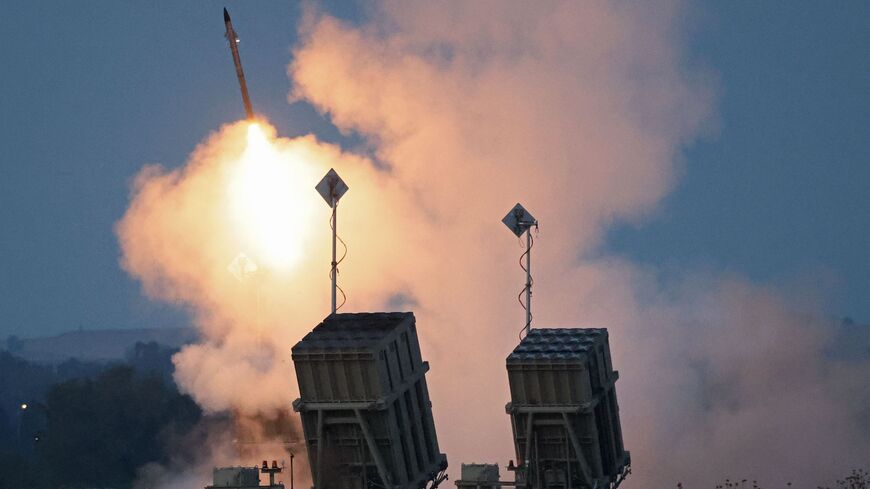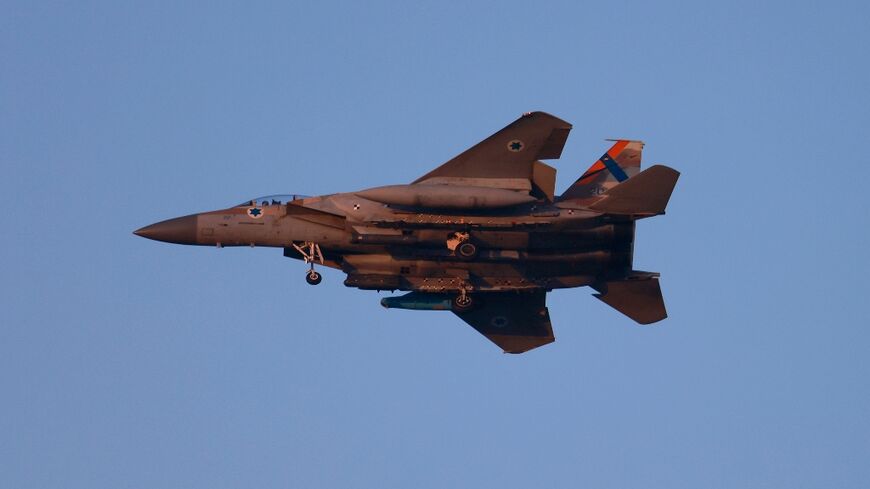Israeli military says it will respond to Iran, weighing 'variety of options'
Iran launched an unprecedented attack on Israel on Saturday in retaliation for the suspected Israeli strike that killed senior members of the Islamic Revolutionary Guard Corps in Syria.

Israel will respond to Iran, the country's military chief of staff said Monday, adding to concerns in Washington and the region about the outbreak of a full-blown war.
"This launch of so many missiles, cruise missiles and UAVs into the territory of the State of Israel will be met with a response," Herzi Halevi said from the Nevatim air base in southern Israel, per a statement.
Halevi's comments come amid reports that a response may be imminent, but Israel has not indicated how and when such an attack might be executed. An Israeli official told NBC News on Monday that the country will respond to the Iranian attack, but that there has been no final decision yet on scale and timing.
Meanwhile spokesperson Daniel Hagari said Monday that because of the relatively minor damage sustained, Israel faces "a variety of options" to respond. "We will do whatever is necessary to protect the State of Israel and we will do it at the time and time we choose," he said.
The Wall Street Journal citing three Western officials reported on Monday that a response could be imminent. One official told the outlet that the United States would not participate in any such offensive. The Israeli public broadcaster Kan reported on Monday that Israel promised to inform the US before any attack so as not to endanger American forces in the region.
In a call Monday with British Foreign Secretary David Cameron, Iranian Foreign Minister Hossein Amir-Abdollahian said that if Israel "seeks adventure," Tehran's response would be "immediate, stronger and more extensive," according to an Iranian Foreign Ministry statement.
Flight disruptions
Several international airlines have canceled flights in the region. Lufthansa suspended regular flights to and from Tel Aviv, Amman and Erbil on Monday, while KLM and other airlines canceled flights to and from Tel Aviv through Tuesday, according to Reuters.
Iran launched an unprecedented missile and drone attack against Israel on Saturday night. While Israeli officials said 99% of the projectiles were shot down and that there was only minor damages, the incident marked the first time Iran has struck Israel directly from its own territory. The Nevatim base was targeted in the attack.
The attack came in response to a suspected Israeli strike on the Iranian Consulate in Syria earlier this month. Seven members of the Islamic Revolutionary Guard Corps were killed in the strike, including two senior commanders.
A senior Israeli official told Al-Monitor’s Ben Caspit on Sunday that Israeli Prime Minister Benjamin Netanyahu is “highly unlikely” to disobey US President Joe Biden on attacking Iran.
US 'not involved' in deliberations
A senior US official told the Israeli news outlet Ynet on Monday, "US President Joe Biden will not stop Prime Minister Benjamin Netanyahu from striking Iran in response to Tehran's unprecedented attack on Israel."
US national security adviser John Kirby told reporters on Monday that Iran's attack on Israel "failed."
"This attack failed because it was defeated by Israel, by the United States and by a coalition of other partners committed to Israel's defense," he said.
Kirby elaborated: “Given the scale of the attack, Iran’s intent was to cause significant destruction and casualties," he said, adding, "There was never any message to us or to anyone else on a timeframe, the targets or the type of response."
Kirby also said the United States is not involved in Israel's deliberations on a response.
"We are not involved in Israel's decision-making process regarding a response against Iran," he said. "The Israeli government will decide for itself if and how to respond."
This is a developing story and will be updated.







